INT’L DAY FOR THE ERADICATION OF POVERTY: Salesian Missions focuses on life-changing education and social programs
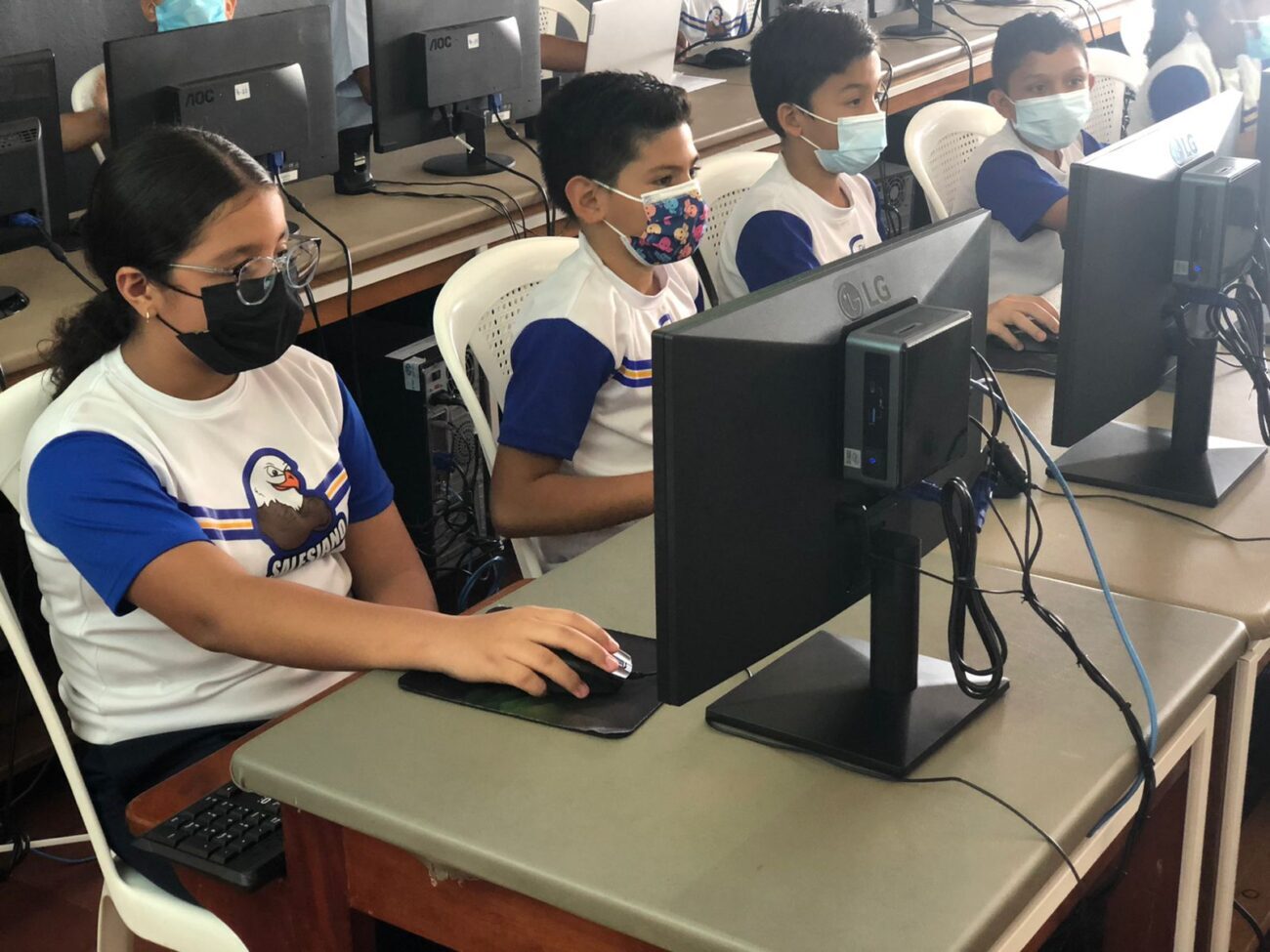
In more than 5,500 Salesian schools and centers, missionaries educate youth in some of the poorest places on the planet
(MissionNewswire) Salesian Missions, the U.S. development arm of the Salesians of Don Bosco, joins humanitarian organizations and countries around the globe in honoring the International Day for the Eradication of Poverty held on Oct. 17 each year. This year marks the 35th anniversary of the World Day to Overcome Extreme Poverty and the 30th anniversary of the International Day for the Eradication of Poverty.
The theme for this year’s International Day for the Eradication of Poverty is “Dignity for all in practice: The commitments we make together for social justice, peace, and the planet” and focuses on basic human rights for all. The United Nations noted, “Dignity is not an abstract concept: it belongs to each and every one. Today, many people living in persistent poverty experience their dignity being denied and disrespected. The ways in which the poorest people are treated are a measure of the respect in which human dignity is held in our societies.”
Whether it’s combating child labor, assisting homeless youth or building schools where children previously had no access to education, Salesian missionaries are ensuring those in need have access to programs and services. Working in more than 5,500 Salesian educational institutions and youth centers around the globe, missionaries educate children in some of the poorest places on the planet.
“Education is a primary pathway out of poverty,” said Father Gus Baek, director of Salesian Missions. “Salesian educational programs provide youth the education and technical skills training they need to prepare for employment and have productive lives while becoming contributing adults in their communities. Programs also go beyond traditional education and help to support youth with basic needs, like offering feeding programs at school, so that they can do the hard work of focusing on their studies.”
In honor of the International Day for the Eradication of Poverty, Salesian Missions is proud to highlight initiatives that help to break the cycle of poverty for youth and their families.
BURUNDI
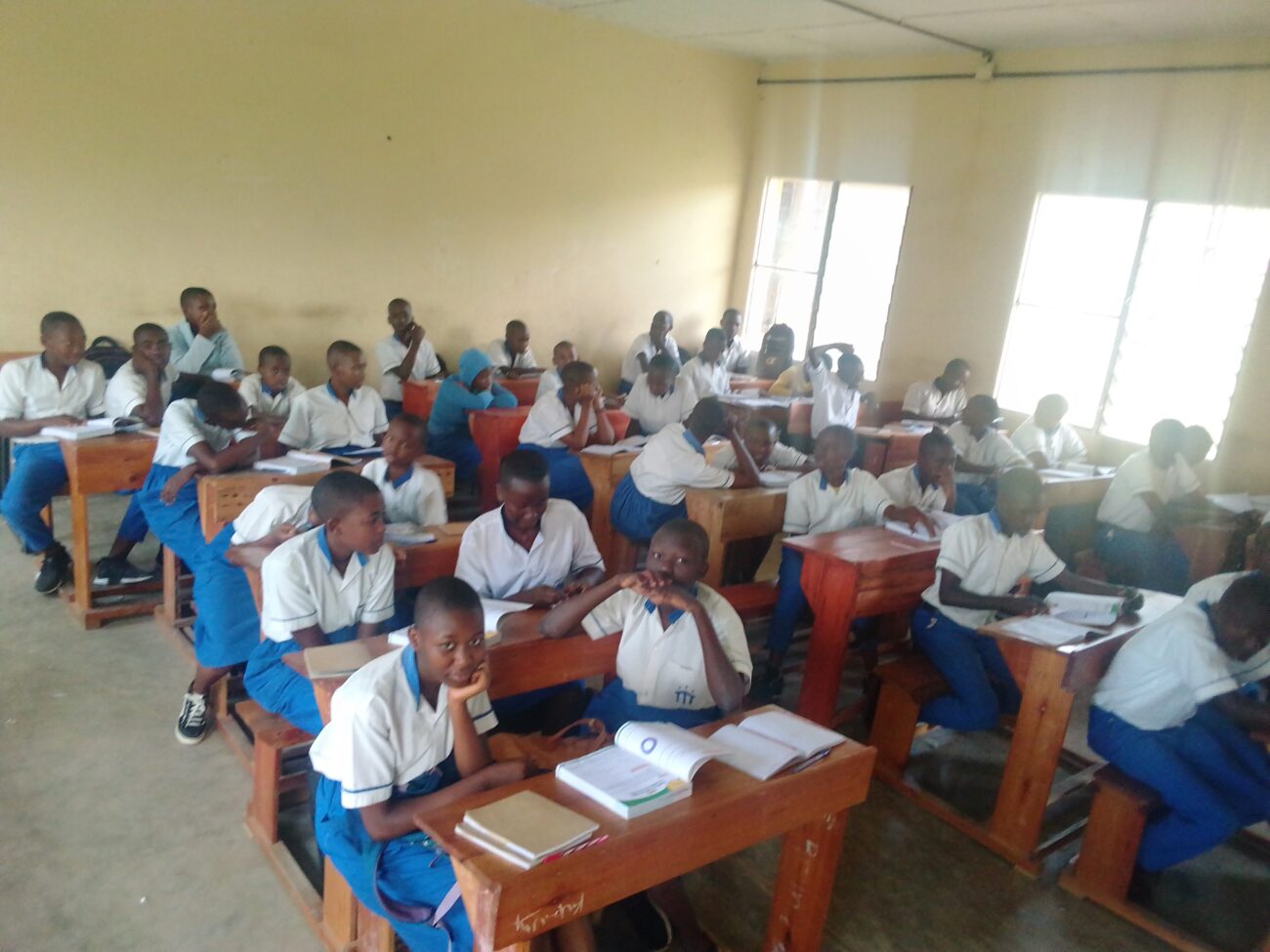
Lycée Don Bosco in Buterere, Burundi, received donor funding from Salesian Missions to build desk benches and provide books to students.
A new secondary school, known as Lycée Don Bosco in Buterere, Burundi*, received funding for materials to build 100 desk benches and 600 books thanks to donor funding from Salesian Missions. The school, which is operating in an unused vocational training center, is educating 165 students.
The desk benches were created in a workshop to help keep down the cost and also provide professional training to students — giving them hands-on experience and preparing them for the workforce.
Salesian missionaries in Burundi and around the globe provide education and social development programs to help poor youth and their families achieve self-sufficiency and have hope for a better life. Through schools, vocational and technical training programs, youth centers, medical clinics, and more, Salesians are ensuring youth have the services and programs they need to thrive.
INDIA
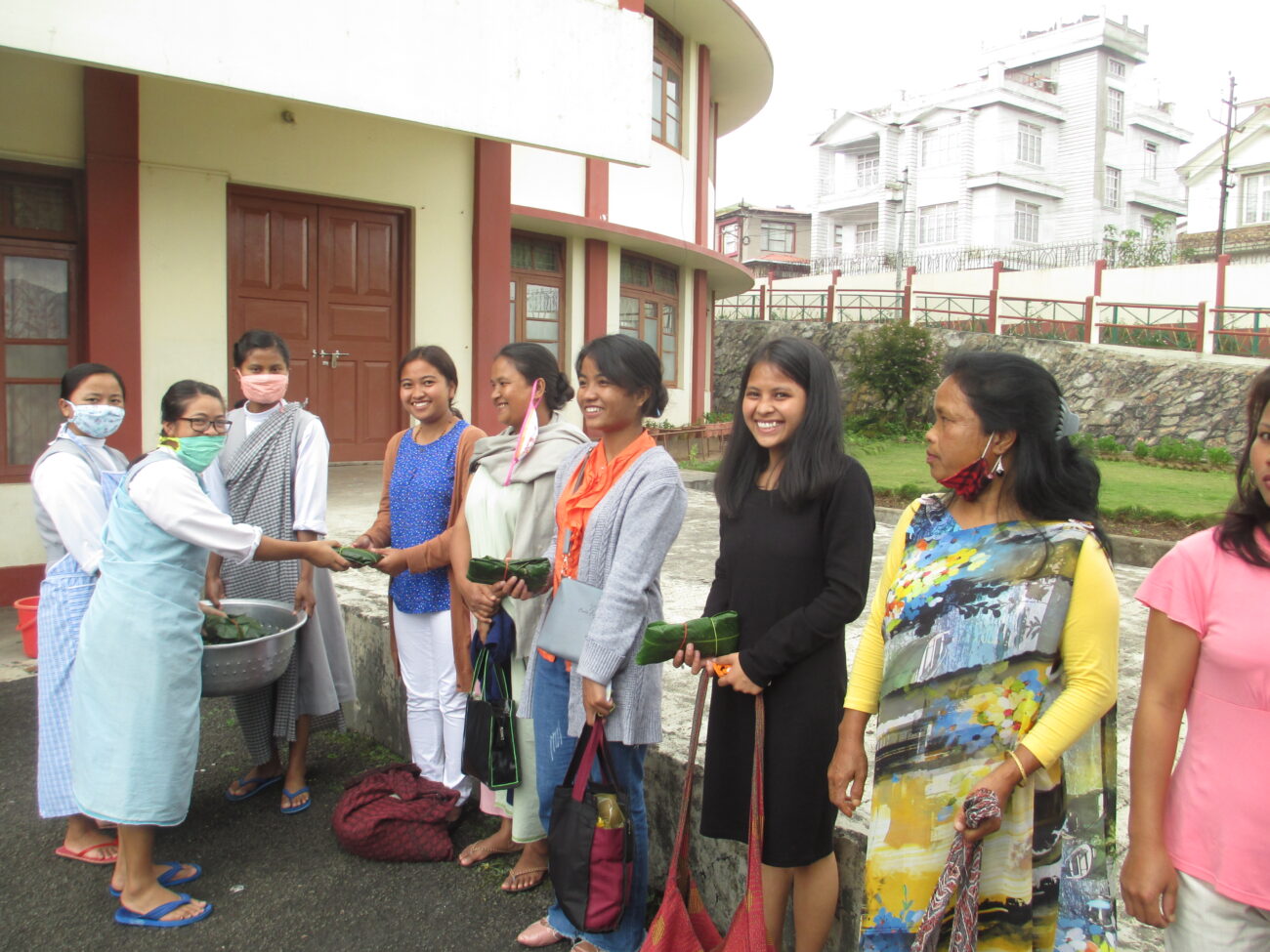
Women and children at the Mary Our Help Training Center in Bellefonte, India, are receiving support thanks to donor funding from Salesian Missions.
Women and children at the Mary Our Help Training Center Bellefonte, in Shillong, India, received support thanks to donor funding from Salesian Missions. Donor funding provided a number of activities to support poor children and empower women.
The training center offers free tutoring and classes every day from 1 to 5:30 p.m. to help children with their studies. The young students who attend often have illiterate parents, lack working electricity at home, or are experiencing other family problems and need the extra support. After the tutoring and classes are provided, a meal is served for the children.
The center also provides scholarship funding for the poorest children in remote villages who have no other opportunity to attend school. Salesian sisters provided the financial means for these children to be placed in local schools and provide for their basic needs while in school.
Donor funding also provided a distribution of rice to 30 families that have elderly family members or mothers who are disabled and in need of help. Once a month, these families are able to come to the center and receive 10 kilograms (22 pounds) of rice to help feed them.
NICARAGUA
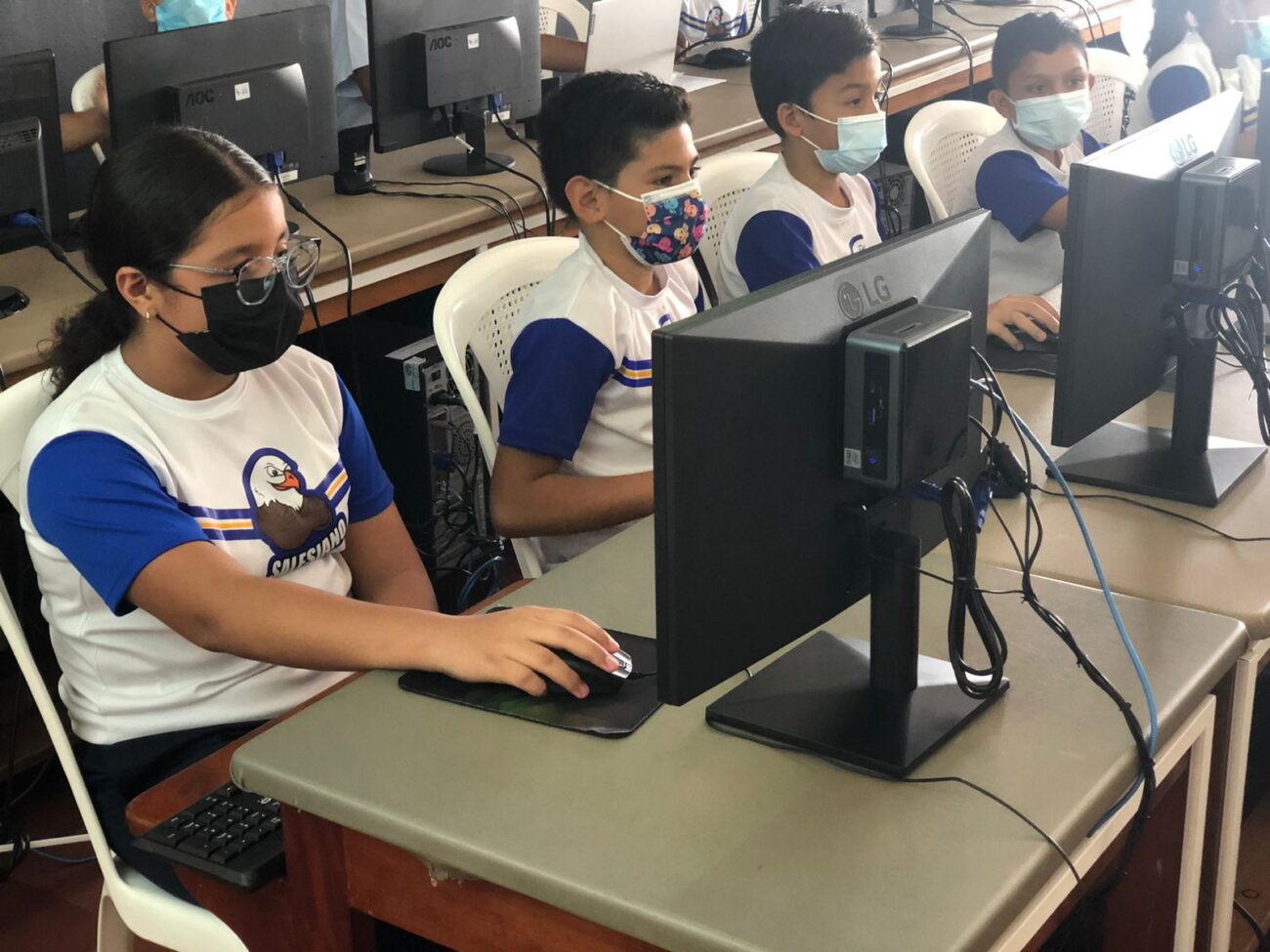
Students at San Juan Bosco Salesian School in Granada, Nicaragua, have access to a new computer lab thanks to donor funding from Salesian Missions.
Students at San Juan Bosco Salesian School, located in Granada, Nicaragua, have access to a new computer lab thanks to donor funding from Salesian Missions. The funds received, together with a contribution from the school, purchased 36 new computers for a computer lab at the preschool and primary school in 2021.
The project benefited 287 students who come from vulnerable households, mostly children whose parents work in the informal market. With the new computer lab, Salesians are able to provide computer literacy training and digital technology access for youth in poverty.
The Nicaraguan education system needs strengthening and improvements in school infrastructure, teaching material, and modalities of education. The COVID-19 pandemic has made it challenging for schools to deliver education to their students. A recent study showed that the main needs of students are connectivity in homes as well as access to technological tools. Over half of children in Nicaraguan primary schools lack access to the internet while more than 80 percent of secondary students lack access.
TANZANIA
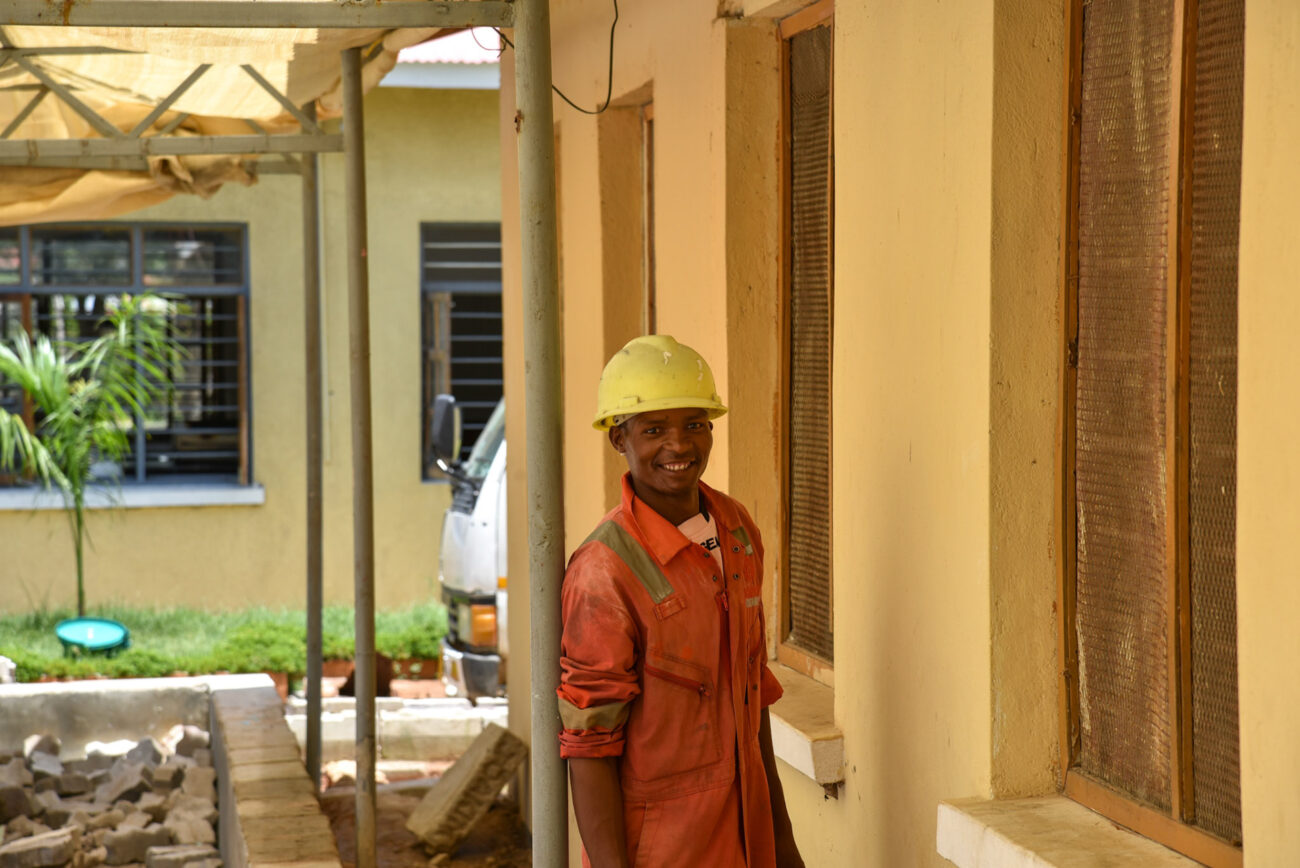
More than 300 students received renewable energy training thanks to funding Salesian Missions received from the Charles Stewart Mott Foundation.
A total of 316 students looking to make a career in renewable energy received training in solar installation, operation and maintenance thanks to grant funding Salesian Missions received from the Charles Stewart Mott Foundation. The training initiative took place from Aug. 1, 2020, to May 31, 2021, at the Don Bosco training centers in Dodoma and Iringa, Tanzania.
Through the training initiative, students benefited from solar technician courses along with soft skills training, field attachments, job search help and other career guidance. With this funding, business development services training started for 94 short course students and 110 Level III trainees. Students now have the knowledge and skills to develop and implement business plans and formally register their businesses.
Don Bosco training centers also organized four career fairs to help students transition from the classroom into the workforce. These events included one-on-one sessions, Q&A panels and experience sharing. The event representatives included partners and solar graduate alumni as well as local and regional companies. Experts in entrepreneurship, soft skills development and human resources were also included. These events presented trainees with the chance to see potential opportunities, acquire new insights and explore the different career pathways available.
###
Sources:
Photos courtesy of Salesian Missions (contact for usage permissions)
BURUNDI: Students benefit from new desks and books
INDIA: Funding helps support poor children and empower women
NICARAGUA: Students stay in school with technology access
TANZANIA: Students gain from renewable energy training
United Nations – International Day for the Eradication of Poverty 2022
*Any goods, services, or funds provided by Salesian Missions to programs located in this country were administered in compliance with applicable laws and regulations, including sanctions administered by the U.S. Department of Treasury’s Office of Foreign Asset Control.




